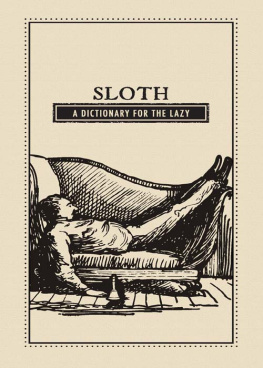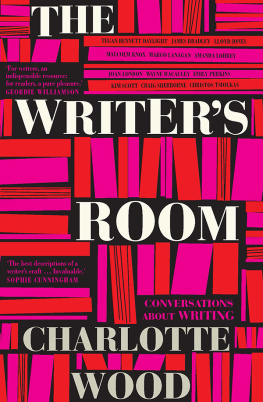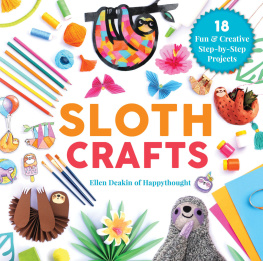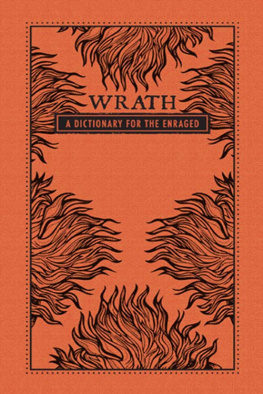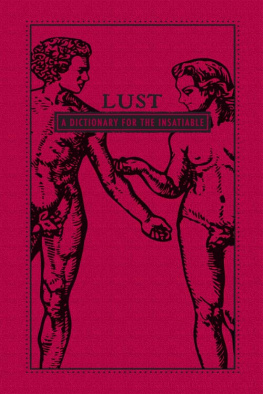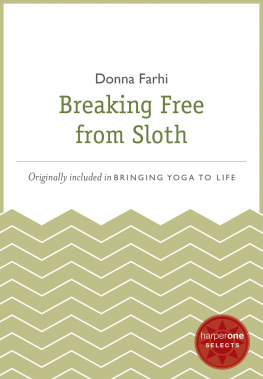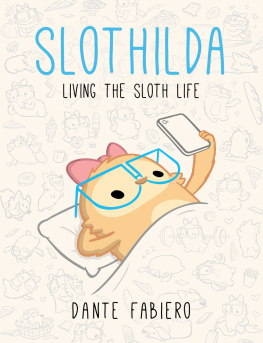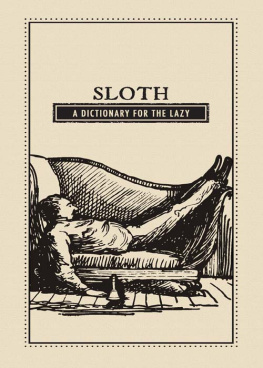NOUN: Consistent aversion to exertion.
North winds set Odysseus off-course landing him on the island of the Lotus Eaters. Tempted by the native tribes beautiful bounty of delicious flowers, the men who indulged lost their fervor to venture on. Lethargy enwrapped the sailors as the allure of the Lotus Eaters indolence subdued any want to return home. Similar to the power of the island peoples plant, the strength of sloth is in the sins subtle ability to make one disregard their responsibilities, dissolve any resolve to achieve, and laze about without worry. Clear the cloudiness of languor by leafing through the dictionary that defines the idlest of vices.
A
abeyance
(uh-BEH-uhns)
NOUN: Being in a state of temporary inactivity. The word is often preceded by in or into.
abjure
(ab-JUR)
VERB: To avoid or abstain from; to recant or renounce, possibly under oath.
abortive
(ah-BAWR-tiv)
ADJECTIVE: Failing to come to completion.
Her pre-emptively ABORTIVE nature left remnants of projects in progress strewn about the house.
abstain
(ab-STAYN)
VERB: To refrain from doing something desirable; often used in relation to alcohol consumption or sexual activity.
accumbent
(uh-KUHM-buhnt)
ADJECTIVE: In a reclined position; recumbent.
acedia
(uh-SEE-dee-uh)
NOUN: A state of indifference, especially in relation to spiritual or religious matters.
aimless
(EYM-lis)
ADJECTIVE: Without a clear direction; purposeless.
aloof
(uh-LOOF)
ADJECTIVE: Disinterested or indifferent.
amble
(am-BUHL)
VERB: To move at a slow pace; meander.
The old man would AMBLE aimlessly between the couch and the bed a few times a day.
apathetic
(ap-uh-THET-ik)
ADJECTIVE: Uncaring or uninterested.
aposiopesis
(ap-uh-sy-uh-PEE-sis)
NOUN: Stopping talking in the midst of a sentence, either because you physically cannot or mentally do not want to; an unfinished thought.
I dont think necessity is the mother of invention. Invention, in my opinion, arises directly from idleness, possibly also from laziness. To save oneself trouble.
A GATHA C HRISTIE
ardorless
(AHR-der-lis)
ADJECTIVE: Without warmth or passion; lack of enthusiasm.
She was so ARDORLESS that her face remained cold and bored, even when holding her newborn daughter.
B
backside
(BAK-syd)
NOUN: Buttocks; rearend.
backrest
(BAK-rest)
NOUN: A support or rest for ones back.
bagatelle
(bag-uh-tel)
NOUN: A thing of little importance; a very easy task.
Her day is filled with many small and meaningless activities; each BAGATELLE demanding very little of her attention.
baked
(BAY-kt)
ADJECTIVE: Intoxicated to the point of lethargy.
balk
(bawk)
VERB: To stop oneself from moving forward; to hesitate from accomplishing a goal.
Sloth and silence
are a fools virtues.
B ENJAMIN F RANKLIN
barnacle
(BAHR-nuh-kuhl)
NOUN: Something that attaches itself to something else in a dogged manner; a crustacean that gloms onto the bottom of a boat.
beachcomber
(BEECH-koh-mer)
NOUN: Literally, a person who combs the beach looking for valuables that others may have left behind.
beck
(bek)
NOUN: A signal or gesture to summon or direct someone.
bed
(bed)
NOUN: A piece of furniture upon which one sleeps or rests.
bedfast
(BED-fast)
ADJECTIVE: Restricted to ones bed.
bedroom
(BED-room)
NOUN: A room intended for sleeping.
boondoggle
(BOON-dog-hul)
NOUN: An activity that is wasteful or pointless but gives the appearance of having value. When used as a verb, it can mean to deceive or to engage in an activity of little value.
bootless
(BOOT-lis)
ADJECTIVE: Failing to achieve result or advantage; fruitless.
All of our BOOTLESS searching felt like a waste, yet we continued looking for the legendary document.
bum
(buhm)
NOUN: A slacker; the word is often used (in a disparaging manner) in reference to homeless people.
bystander
(BY-stan-der)
NOUN: One who observes an activity but does not get involved in it.
C
careless
(KAYR-lis)
ADJECTIVE: Without care or concern; negligent.
catnap
(KAT-nap)
NOUN: A quick nap; as a verb, its the act of taking a quick nap.
cavalier
(KAV-uh-leer)
ADJECTIVE: Showing a lack of concern for an otherwise important person or thing; disdainful.
He was CAVALIER regarding the wedding; while his future bride planned fervidly and glowed with excitement, he stared ahead, unblinking.
cessation
(se-SAY-shuhn)
NOUN: A stoppage, often permanently; termination.
chill
(chil)
VERB: Traditionally referring to a feeling of coldness, its also slang for the act of relaxing; to hang out.
Ambition is a poor excuse
for not having sense enough to be lazy.
E DGAR B ERGEN
clock-watcher
(klok-WOCH-er)
NOUN: Originally used to refer to an apathetic employee who spends his or her day watching the clock for when its time to go home, the phrase can be used to describe anyone with a clear lack of interest in an activity.
comatose
(KOHM-muh-tohs)
ADJECTIVE: In addition to being used in a medical setting to characterize someone in a coma, it can also be used to describe a lack of energy or awareness.
conciliatory
(kohn-SIL-ee-uh-tawr-ee)
ADJECTIVE: Describes someone or thing that is pacifying or willing to compromise to keep peace.

